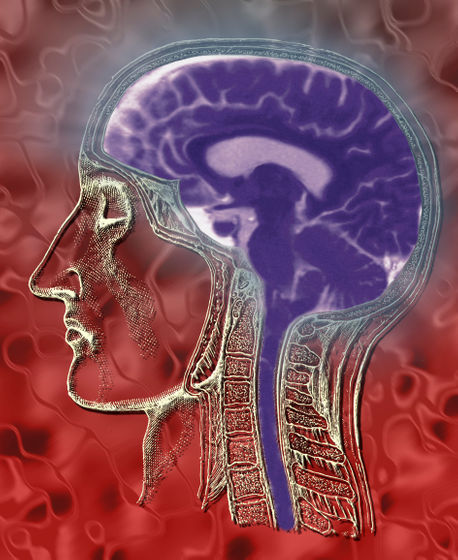A study of a man who avoided the fate of dementia suggests that high temperatures may protect the brain from Alzheimer's disease

Dementia and Alzheimer's disease are related to various factors, and
Longitudinal analysis of a dominantly inherited Alzheimer disease mutation carrier protected from dementia | Nature Medicine
https://www.nature.com/articles/s41591-025-03494-0
Patient defies genetic fate to avoid Alzheimer’s – WashU Medicine
https://medicine.washu.edu/news/patient-defies-genetic-fate-to-avoid-alzheimers/
Man nearly guaranteed to get early Alzheimer's is still disease-free in his 70s — how? | Live Science
https://www.livescience.com/health/alzheimers-dementia/man-nearly-guaranteed-to-get-early-alzheimers-is-still-disease-free-in-his-70s-how
Doug Whitney, who lives near Seattle, Washington, is 75 years old at the time of writing, but is mentally alert and cognitively healthy. However, Whitney is almost certain to have a family history of 'overt inherited Alzheimer's disease (DIAD),' which is a condition that leads to early-onset Alzheimer's disease. In fact, Whitney's mother and 11 of her 13 siblings developed Alzheimer's disease before the age of 50.
'My family has been affected by this disease since at least the early 1990s, probably much earlier than that, so it's really important to me to understand this,' Whitney said. 'My mother had 13 brothers and sisters, and 10 of them died before they turned 60. It's a real tragedy.'
Whitney, who collaborated on Alzheimer's disease research.

By Megan Farmer
To investigate why Whitney became one of only three people identified to have 'genetically avoided the fate of developing Alzheimer's disease,' a research team led by Jorge Libre-Guerra of the University of Washington School of Medicine thoroughly scanned Whitney's brain to look for 'amyloid beta protein' and 'tau protein,' which are closely related to Alzheimer's disease.
The genetic mutation in the presenilin 2 gene (PSEN2), which Whitney and other people with DIAD have, is linked to the overproduction of amyloid beta protein, which is thought to be the first stage of the progression of Alzheimer's disease. In the second stage, when cognitive decline, a hallmark of Alzheimer's disease, begins in earnest, tau protein is deposited in the brain.
However, when the research team scanned Whitney's brain, they found that while she had a large accumulation of amyloid beta protein, tau protein was only present in a small part of her brain.
'These results support the idea that if we can block the chain reaction between amyloid beta and tau, we might be able to slow the onset of Alzheimer's disease,' said Libre-Guerra. 'The question is, what is stopping the spread of tau in this case?'
Whitney (left) and his wife, Ionee Whitney (right), work on a puzzle.

Clues about why Whitney's brain was spared from the buildup of tau protein are limited: Researchers have determined that Whitney carries a gene that may be involved in preventing Alzheimer's disease, but little is known about the gene.
One of the few clues is Whitney's background. As a sailor, Whitney spent many years working as a mechanic in the engine room of a ship, enduring high temperatures. This experience may have protected Whitney's brain by promoting the synthesis of 'heat shock proteins,' which are important for repairing and regenerating proteins in the body damaged by high temperatures.
In fact, when the team analyzed Whitney's cerebrospinal fluid for biological molecules that could indicate unusual cellular activity in her brain, they found extremely high concentrations of heat shock proteins.

As Libre-Guerra repeatedly emphasizes, the claim that exposure to high temperatures protects the brain from Alzheimer's is still just a speculative hypothesis, but experts hope that Whitney's valuable data may be useful in future research into Alzheimer's and dementia.
'It is unclear whether or how heat shock proteins mediate the protective effect against Alzheimer's disease,' said Libre-Guerra. 'We don't know for sure yet, but in this case it's possible that heat shock proteins are involved in preventing tau aggregation, or the misfolding of proteins, where the molecules fold abnormally.'
Related Posts:
in Science, Posted by log1l_ks







